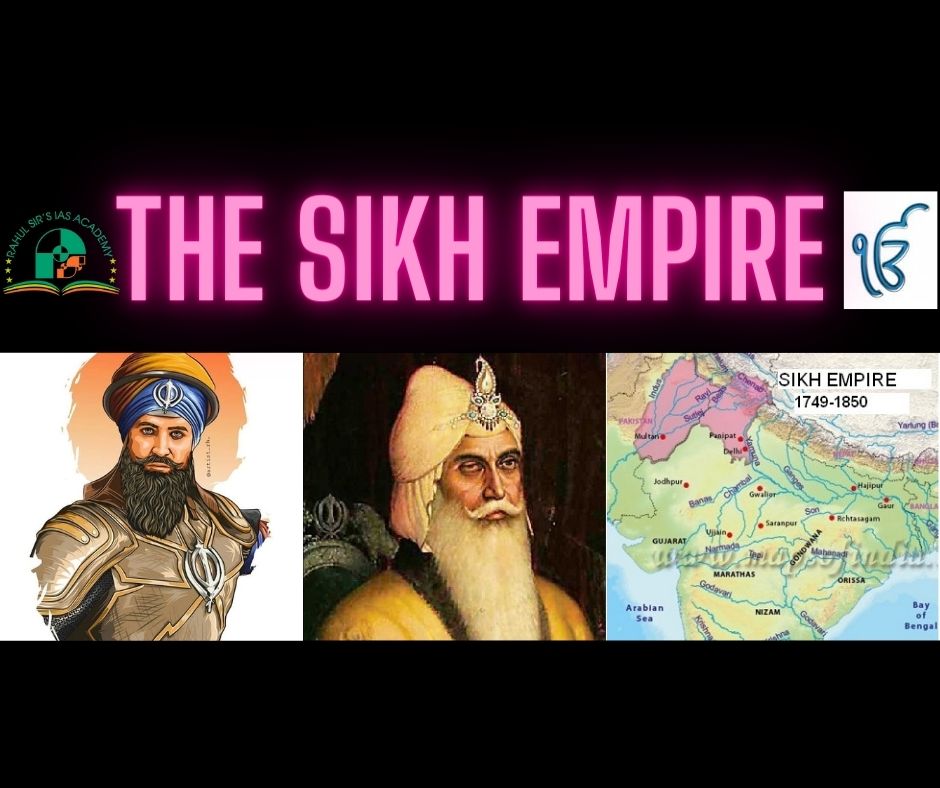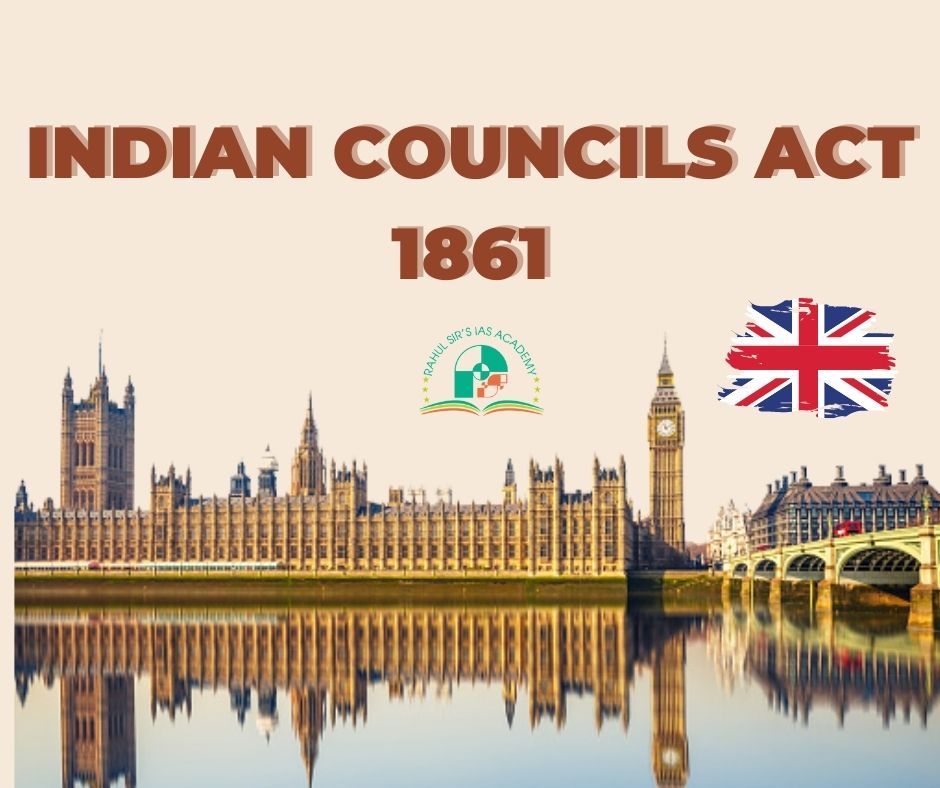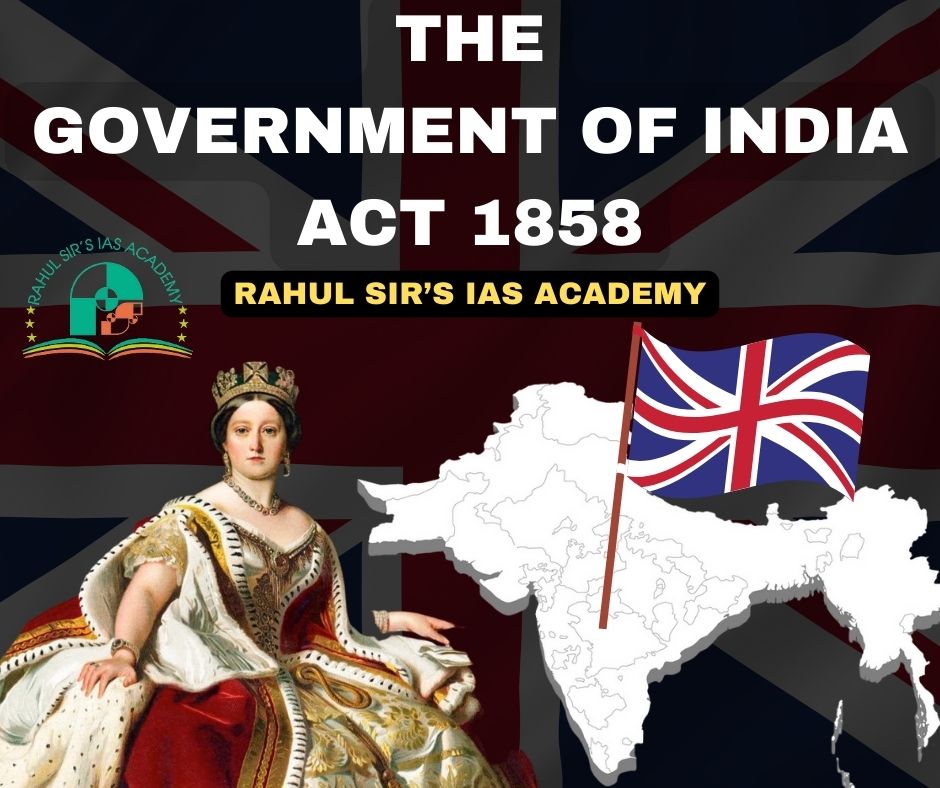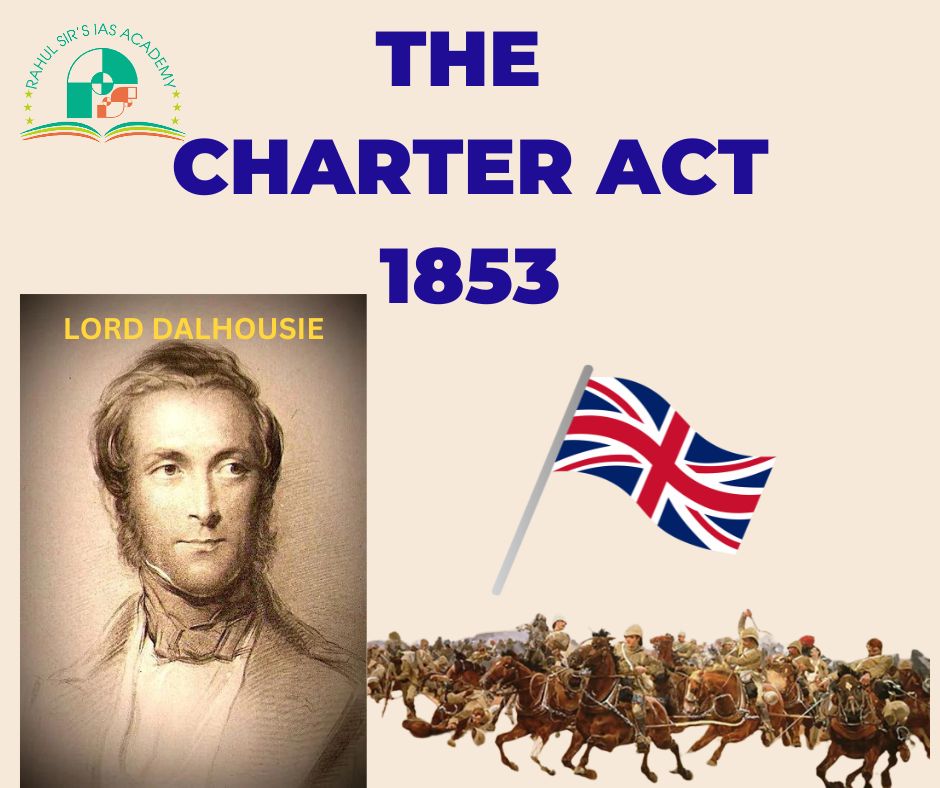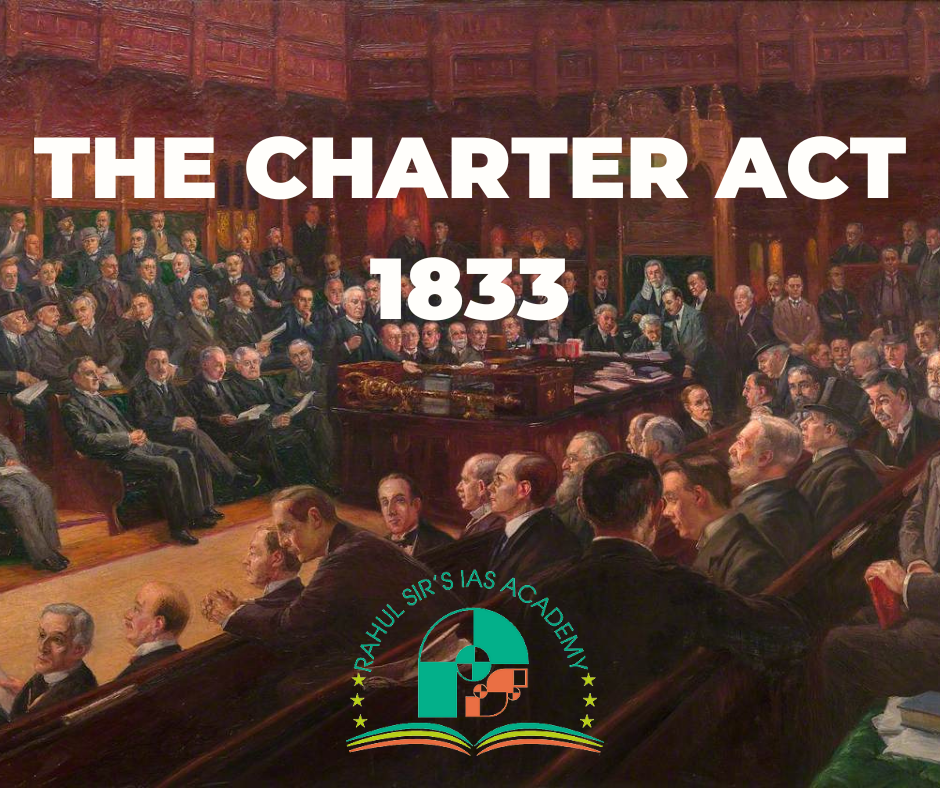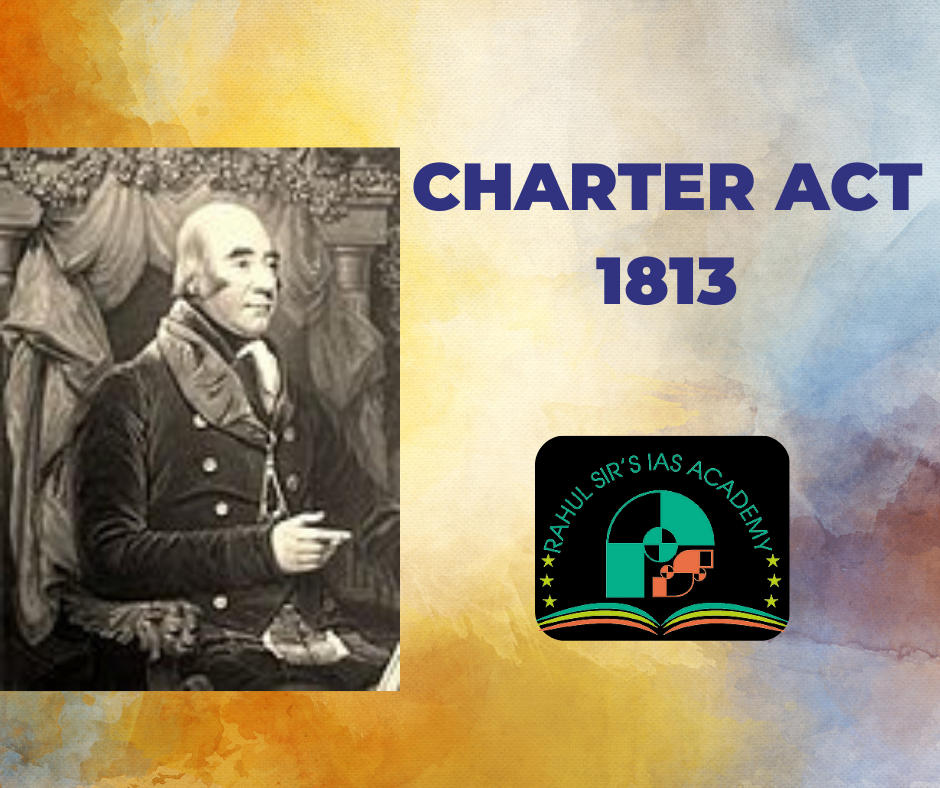Maharaja Ranjit Singh was the first Maharaja of the Sikh Empire, which ruled the northwest region of India in the early 19th century..
Indian Councils Act 1861 – Historical Background The Indian Councils Act 1861 was primarily introduced to accommodate Indians in the British administration. The Revolt of 1857 was a big...
Government Of India Act 1858 – Introduction The Government of India Act 1858 marked a turning point not only for the British rule in India but also for the...
Introduction to Charter Act 1853 The Charter Act 1853, also known as the East India Company Act 1853, was the last of Charter Acts. It was an Act of...
What was the Charter Act 1833? The Charter Act 1833, also known as the East India Company Act 1833, was an Act of the British Parliament enacted in 1833....
Background of Charter Act 1813 The Charter Act of 1813, also known as the East India Company Act 1813, was enacted by the British Parliament in 1813. It is...


